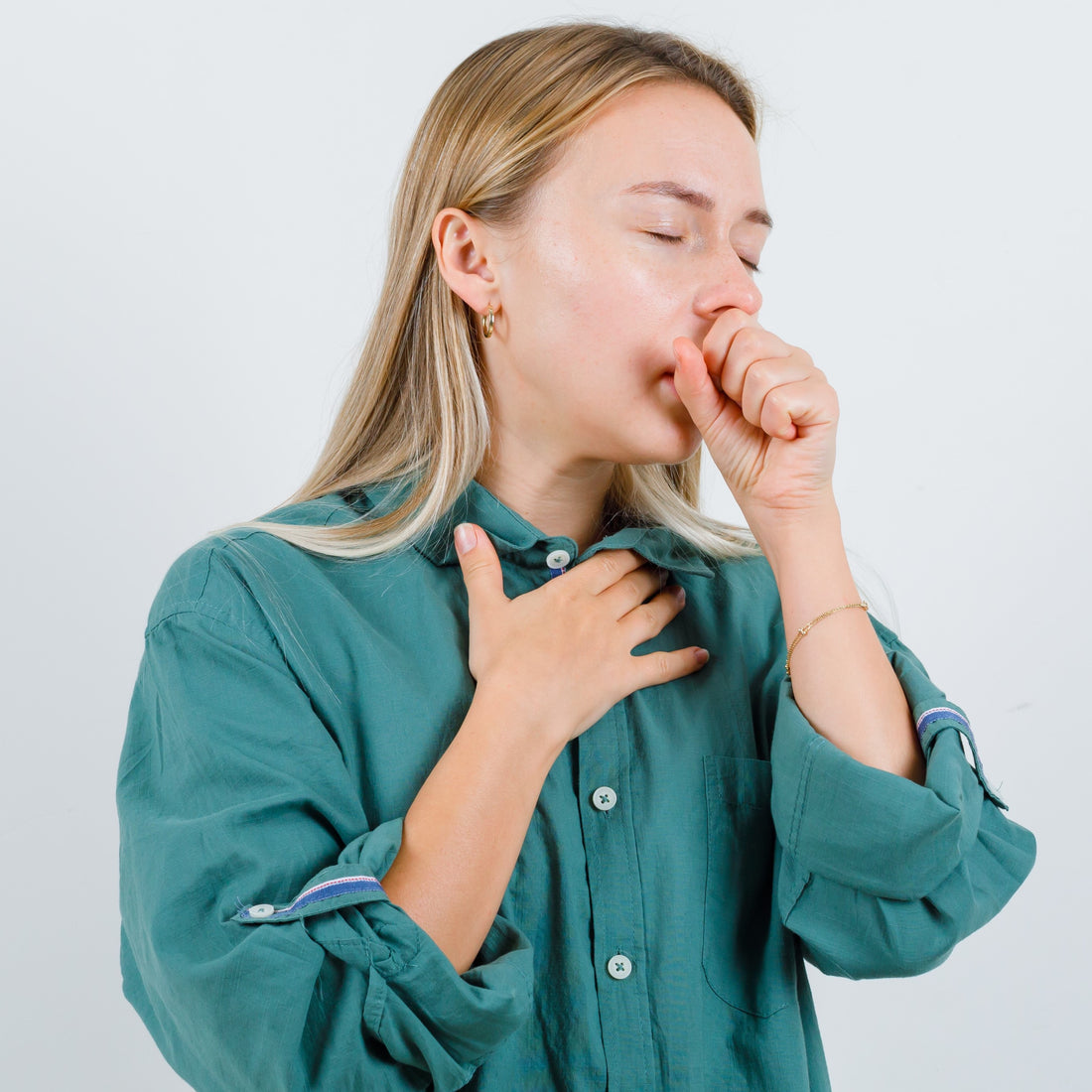"Breath Easy: 15 Home Remedies for Asthma Wheezing You Can Try Right Now"
Asthma is a chronic respiratory condition that affects millions of people worldwide. Wheezing, shortness of breath, and chest tightness are common symptoms of asthma. While inhalers or nebulizers are often the go-to treatment for asthma, some individuals may not always have access to them or prefer natural remedies. Let’s explore various home remedies and techniques for managing asthma and alleviating wheezing without an inhaler or nebulizer.
Breathing Techniques
Diaphragmatic breathing:
Also known as belly breathing, this technique can help to reduce the strain on your airways and increase the amount of oxygen that reaches your lungs. To practice diaphragmatic breathing, sit or lie down in a comfortable position, place one hand on your chest and the other on your abdomen, and breathe in slowly through your nose, allowing your abdomen to rise. Exhale slowly through pursed lips, and repeat the process.
Pursed-lip breathing:
This technique involves exhaling through slightly pursed lips, which helps to maintain a positive airway pressure and prevents airway collapse. Inhale through your nose, then exhale slowly through pursed lips, taking twice as long to exhale as you did to inhale. This method can be particularly helpful during an asthma attack or when experiencing wheezing.
Natural Remedies
Steam inhalation:
Breathing in warm, moist air can help to open your airways and reduce wheezing. Fill a bowl with hot water, place a loose towel over your head to create a tent, and inhale the steam for several minutes. Alternatively, you can take a hot shower, ensuring the bathroom is filled with steam.
Eucalyptus oil:
Eucalyptus oil has been found to have bronchodilator properties, which can help to open up the airways and reduce wheezing. Add a few drops of eucalyptus oil to a bowl of hot water or a diffuser, and inhale the steam or vapor.
Caffeinated beverages:
Moderate amounts of caffeine, found in coffee, tea, or chocolate, can help to relax the airway muscles and provide temporary relief from wheezing. However, do not overconsume caffeine, as it may cause other health issues.
Lifestyle Changes
Maintain a clean environment:
Regularly cleaning your home, especially the bedroom, can help to minimize allergens such as dust mites, pet dander, and mold. Use a vacuum cleaner with a HEPA filter and consider using air purifiers to further reduce indoor allergens.
Stay hydrated:
Drinking enough water throughout the day can help to thin mucus in the airways and reduce the risk of wheezing. Aim to drink at least eight 8-ounce glasses of water daily.
Exercise regularly:
Engaging in regular physical activity can help to strengthen your respiratory muscles and improve lung function. Choose low-impact exercises such as swimming, walking, or yoga to minimize the risk of triggering asthma symptoms.
Dietary Changes
Anti-inflammatory foods:
Consuming a diet rich in anti-inflammatory foods, such as fatty fish, leafy greens, and berries, can help to reduce inflammation in the airways and alleviate asthma symptoms. Additionally, include foods high in antioxidants, like nuts and seeds, to support overall lung health.
Avoiding food triggers:
Certain foods, such as dairy products, processed foods, and sugary beverages, can exacerbate asthma symptoms for some individuals. Identify and avoid any food triggers to help manage your asthma more effectively.
Vitamin D supplementation:
Studies have shown that low levels of vitamin D may be associated with increased asthma symptoms. Consider incorporating vitamin D-rich foods, such as salmon, fortified milk, and eggs, into your diet or discuss supplementation with your healthcare provider.
Herbal Remedies
Ginger:
Ginger has anti-inflammatory properties and may help to relax the airways. You can consume ginger in various forms, such as in tea, capsules, or by adding it to your meals.
Turmeric:
Curcumin, the active compound in turmeric, has been found to have anti-inflammatory and bronchodilator effects. Add turmeric to your cooking, or take it as a supplement under the guidance of a healthcare professional.
Licorice root:
Licorice root has been used in traditional medicine for its anti-inflammatory and immune-boosting properties. It may help to soothe the airways and reduce asthma symptoms. Licorice root can be consumed as a tea or taken in capsule form. However, consult your healthcare provider before using licorice root, as it may interact with certain medications.
Stress Management
Mindfulness and meditation:
Practicing mindfulness and meditation can help to reduce stress and anxiety, which can trigger or worsen asthma symptoms. Set aside time each day to engage in relaxation techniques, such as deep breathing, progressive muscle relaxation, or guided imagery.
Yoga:
The combination of gentle movement, breathing exercises, and relaxation techniques in yoga can help to reduce stress and improve lung function. Consider incorporating a regular yoga practice into your routine, focusing on poses and breathing techniques that support respiratory health.
Seek professional support:
If you find that stress or anxiety is negatively impacting your asthma, consider seeking the help of a mental health professional who can guide you through effective stress management techniques.
Conclusion
Managing asthma symptoms and reducing wheezing without an inhaler is possible through a combination of natural remedies, lifestyle changes, dietary adjustments, and stress management techniques. It is essential to consult with your healthcare provider before implementing any new treatments or making significant changes to your current asthma management plan. By taking a proactive approach to your health and focusing on holistic asthma care, you can improve your overall quality of life and reduce the frequency and severity of asthma symptoms.
<a href="https://www.freepik.com/free-photo/young-lady-green-shirt-suffering-from-cough-looking-sick_15330811.htm#query=a%20women%20suffering%20from%20asthma&position=23&from_view=search&track=ais">Image by 8photo</a> on Freepik

